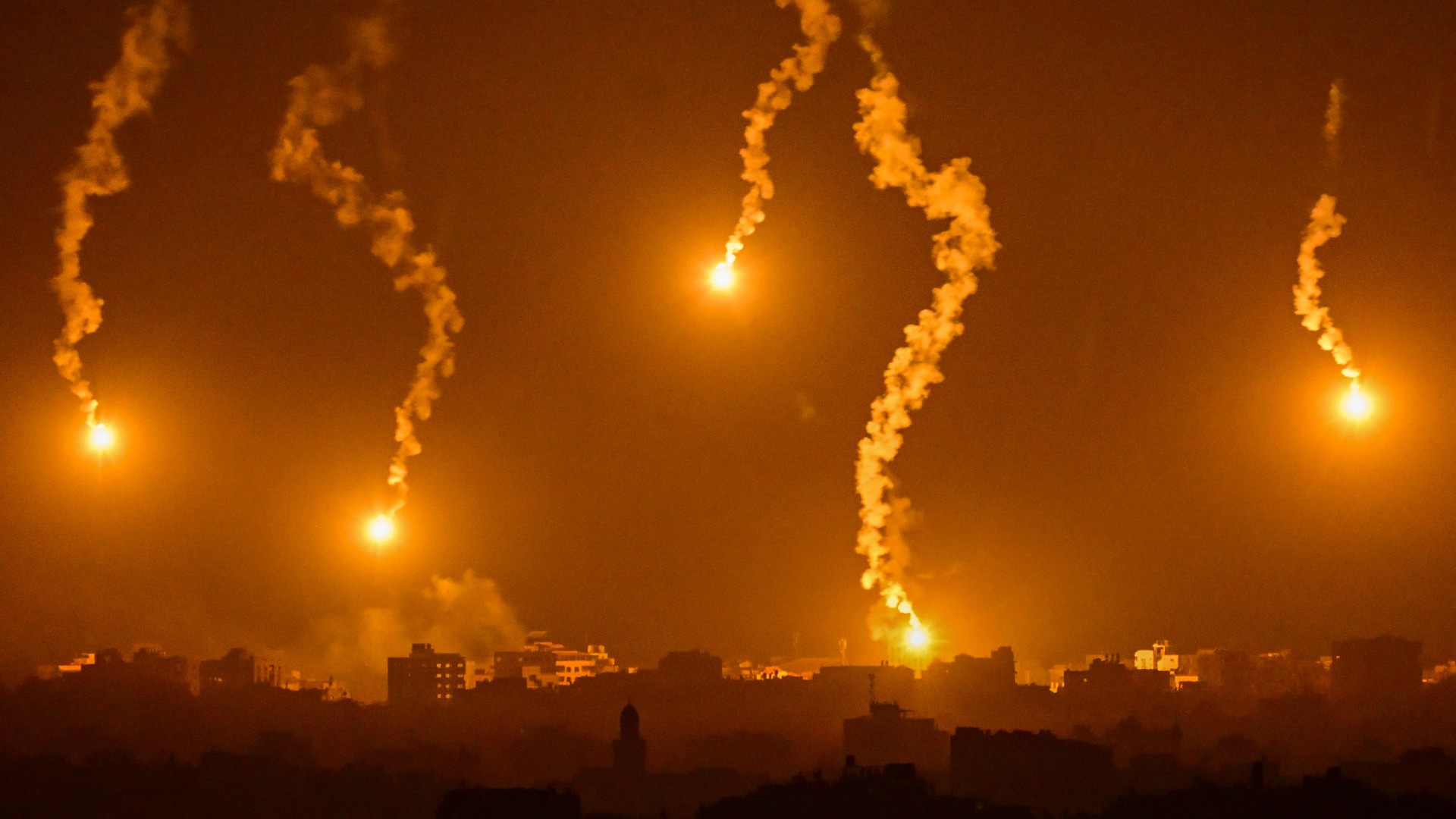Israel approves harsher punishment for those who throw 'murderous objects'


A free daily email with the biggest news stories of the day – and the best features from TheWeek.com
You are now subscribed
Your newsletter sign-up was successful
Prime Minister Benjamin Netanyahu announced Thursday Israel will start sentencing people convicted of throwing objects like rocks and flares to a minimum of four years in jail.
"The Security Cabinet unanimously adopted a series of measures within the framework of our fight against stone throwers, petrol bombs, and flares," he said in a televised statement. "We intend to change the norm that has taken root, that in Israel, you can throw these dangerous, murderous objects without a response and without combating them." Because this is a temporary measure good for three years, parliament does not have to approve. Local NGOs have spoken out against the move, saying it targets Palestinian children, who are often accused of stone-throwing.
The Security Cabinet also agreed to allow Israeli security forces to open fire when the life of a third party is in danger; previously, they could only shoot if they were the ones in harm's way. There has been an increase of violence in the West Bank and East Jerusalem, including attacks against Israeli vehicles and a surge in stone-throwing, Reuters reports.
The Week
Escape your echo chamber. Get the facts behind the news, plus analysis from multiple perspectives.

Sign up for The Week's Free Newsletters
From our morning news briefing to a weekly Good News Newsletter, get the best of The Week delivered directly to your inbox.
From our morning news briefing to a weekly Good News Newsletter, get the best of The Week delivered directly to your inbox.
A free daily email with the biggest news stories of the day – and the best features from TheWeek.com
Catherine Garcia has worked as a senior writer at The Week since 2014. Her writing and reporting have appeared in Entertainment Weekly, The New York Times, Wirecutter, NBC News and "The Book of Jezebel," among others. She's a graduate of the University of Redlands and the Columbia University Graduate School of Journalism.
-
 Political cartoons for February 16
Political cartoons for February 16Cartoons Monday’s political cartoons include President's Day, a valentine from the Epstein files, and more
-
 Regent Hong Kong: a tranquil haven with a prime waterfront spot
Regent Hong Kong: a tranquil haven with a prime waterfront spotThe Week Recommends The trendy hotel recently underwent an extensive two-year revamp
-
 The problem with diagnosing profound autism
The problem with diagnosing profound autismThe Explainer Experts are reconsidering the idea of autism as a spectrum, which could impact diagnoses and policy making for the condition
-
 Is Gaza ceasefire deal about to fizzle out?
Is Gaza ceasefire deal about to fizzle out?Today's Big Question Israel and Hamas accuse each other of deliberately breaking first phase of the fragile truce, which is set to expire on Saturday
-
 Is Donald Trump behind potential Gaza ceasefire and will it work?
Is Donald Trump behind potential Gaza ceasefire and will it work?Today's Big Question Israel and Hamas are 'on the brink' of a peace deal and a hostage exchange, for which the incoming president may take credit
-
 Mossad's history with explosive technology
Mossad's history with explosive technologyThe Explainer Infamous Israeli spy agency has not claimed responsibility for Hezbollah's exploding pagers but has 'decades-long' list of remote assassinations
-
 Hamas and Hezbollah strikes: what does it mean for Israel?
Hamas and Hezbollah strikes: what does it mean for Israel?Today's Big Question Iran vows revenge for death of Hamas political leader in Tehran, hours after Israeli strike kills top Hezbollah member in Beirut
-
 British warship repels 'largest Houthi attack to date' in the Red Sea
British warship repels 'largest Houthi attack to date' in the Red SeaSpeed read Western allies warn of military response to Iranian-backed Yemeni rebels if attacks on ships continue
-
 Houthi rebels claim Red Sea ship attacks
Houthi rebels claim Red Sea ship attacksspeed read Iran-backed Yemeni group vows to escalate aggression towards Israel-linked vessels in revenge for Gaza war
-
 Israel plans next phase of Gaza war as first hostages released
Israel plans next phase of Gaza war as first hostages releasedSpeed read After four-day ceasefire 'we will not stop' until destruction of Hamas, says Israel
-
 Israel says Gaza split in two in 'significant stage' of war against Hamas
Israel says Gaza split in two in 'significant stage' of war against HamasSpeed Read Troops expected to enter Gaza City within 48 hours as US secretary of state continues 'diplomatic shuttle'
